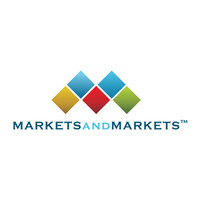Battery Technology Market - Future Scope, Revenue Growth and Forecast Research 2025
An energy storage device known as a battery is widely utilised in the transportation, consumer electronics, power & utility, as well as industrial, commercial & residential, and medical sectors. Players offering batteries based on various technologies make up the battery technology market. The market is diverse, and many businesses are fighting with one another along the entire value chain to maintain and grow their market share. The demand for electric and hybrid vehicles will certainly expand in the near future, which will lead to significant growth for the Battery Technology Market. At a CAGR of 10.6%, it is predicted that the size of the global battery technology market would increase from USD 92.0 billion in 2020 to USD 152.3 billion by 2025. The top three companies in the Battery Technology Market are Clarios (US), Panasonic Corporation (Japan), and Samsung SDI (South Korea).
Download PDF Brochure @ https://www.marketsandmarkets.com/pdfdownloadNew.asp?id=253343109
CLARIOS (US)
One of the top suppliers of innovative energy storage solutions is Clarios, formerly known as Johnson Controls Power Solutions. On May 1, 2019, Brookfield Business Partners purchased Johnson Controls Power Solutions, the battery branch of Johnson Controls International Inc., and changed the name to Clarios. Under private labels and corporate brand names like Varta, Optima, LTH, Delkor, Baterias MAC, and Heliar, the corporation sells car batteries all over the world. More than 150 nations in North America, Europe, and Asia Pacific are serviced by the corporation. They concentrate on growing their product line to accommodate the diverse demands of their clients across a range of end-use applications. For instance, Clarios debuted its unique VARTA Powersports batteries for motorcycle and recreational uses in March 2019, and in April 2019, it unveiled its novel VARTA Silver Dynamic Auxiliary battery portfolio in the European market.
Panasonic Corporation (Japan)
Panasonic is a global multinational company made up of 582 consolidated enterprises. Appliances, Eco Solutions, Connected Solutions, and Automotive & Industrial Systems are the company's four business segments. A wide variety of rechargeable and non-rechargeable batteries, including those using lead-acid, lithium-ion, nickel-metal hydride, nickel-cadmium, coin, lithium, and alkaline technologies, are produced for industrial use by the batteries & energy products business. In order to target areas that are rising and experiencing high growth, the organisation focuses on inorganic strategies like joint ventures and collaborations. For instance, it decided to form a joint venture with Toyota Motor Corporation in January 2019 that will focus on the automated prismatic battery market. The business intends to improve its automotive batteries and concentrate on the Chinese market, which offers development potential for EVs, commercial vehicles, and passenger cars.
Speak to Analyst @ https://www.marketsandmarkets.com/speaktoanalystNew.asp?id=253343109
Samsung SDI (South Korea)
The Samsung group company Samsung SDI makes plasma display panels and secondary cells. Since the corporation began its secondary Li-ion battery business in 2000, the production of Li-ion batteries has taken precedence. Electronics Materials and Energy Solutions are SDI's two main business divisions. Small-sized li-on batteries, automotive batteries, and ESS (Energy Storage System) goods are all included in the Energy Solutions sector, whereas semiconductors and display materials are included in the Electronics Materials segment. In the Battery Technology Market, Samsung SDI holds a commanding market share. The company engages in extensive research and development (R&D) activities to raise secondary cell efficiency, develop new and creative materials, and improve the performance of existing materials. In 2018, it spent 6.6% of its overall revenue on R&D efforts.
Chaowei Power (China), Contemporary Amperex Technology (China), Enersys (US), LG Chem (South Korea), BYD Company (China), Hitachi Chemical (Japan), and other businesses are also active in the development of the battery technology market.
Browse For More Details - https://www.prnewswire.com/news-releases/battery-technology-market-worth-152-3-billion-by-2025---exclusive-report-by-marketsandmarkets-301010564.html




Comments
Post a Comment